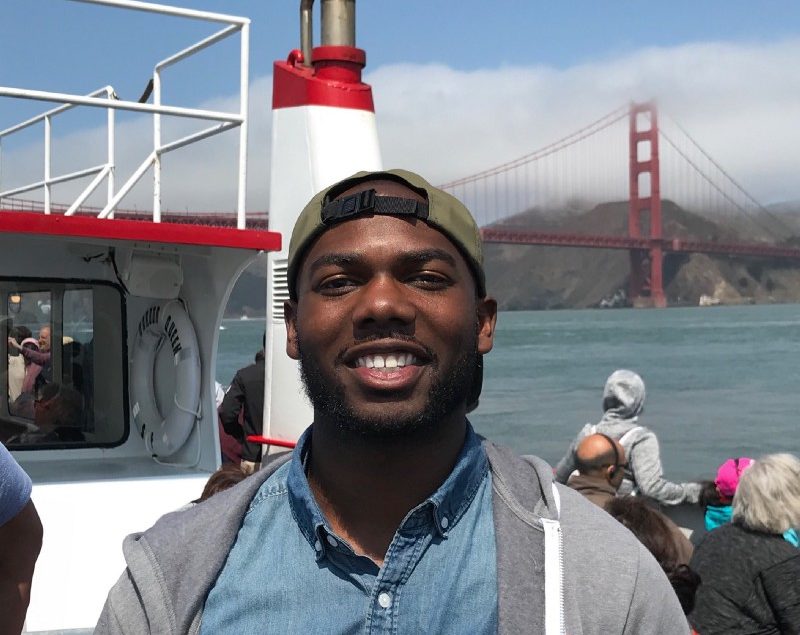Lessons From a Black Intern in Silicon Valley!

This past summer I had the opportunity to intern in the infamous California Bay Area (otherwise known as Silicon Valley) for Accenture. I worked in Accenture’s Ventures division, where they partner and strategically invest in the most promising innovations in the market. Being in Silicon Valley taught me valuable lessons that I could not have picked up anywhere else.
Network
The network in The Valley is incredible. I was able to network with venture capitalists, tech entrepreneurs, and corporate innovation groups. The individuals I met took my learnings to the next level. Leaping out of my comfort zone, I went to many of the networking events held in the Bay Area. I learned about
- Blockchain from a student at North Carolina A&T,
- African symbolism used in the modern-day US from a recruiter at LinkedIn,
- Challenges that human resources face from a Yahoo HR rep,
- The role of a product manager from Facebook,
- How to build a business in Cincinnati from a tech entrepreneur,
- How technology is impacting education from a director at Learn Capital,
- And a wealth of other interesting facts.
Some of the conversations I had with individuals led to me becoming present during my internship. Networking gave me this sort of “open innovation” approach to improving my effectiveness at work by exposing myself to ideas I never thought of before. I learned that the goal in networking is to listen so that you can add value to what the other person is already doing or seeking to do.
Technology
On one of my projects, I performed crucial work that aided in the establishment of the team’s Extended Reality (XR) Technology Segment. I helped to identify the strongest XR enterprise use cases that would apply to Accenture’s client base. I preferred startup providers as well as uncovered new startups to have on the radar, and I developed industry segment-specific views on Extended Reality. Extended Reality already has use cases in every industry from the unexpected Financial Services industry to the highly active Products & Retail sector. By 2020, 25 percent of field service techs will use augmented reality. The oil and gas sector is one of the sectors most prime for this disruption. Augmented and virtual reality enterprise use cases are strongest in the areas of training and educating employees, connected worker, and shopping/commerce.
New Skills
I acquired a lot of new skills while working in The Valley. The top two skills that I learned were investment analytics and storytelling. For one of my projects, I analyzed the investments of 53 technology companies holding over 1500 investments into different startups. I compared investments that various corporate venture capitalists (CVCs) have made, and explored those investments to generate insights as to why each CVC made those specific investments. I learned new tools which helped me to consume large amounts of data such as R Studio, a programming language for statistical computing and graphics. R Studio enabled me to visualize the data in different ways to generate insights. I specifically used these tools to map technology trends in various industries.
A critical skill in my role with Accenture Ventures and networking in the Bay Area was storytelling a.k.a pitching.
In presenting, I have a natural tendency to use filler words such as “actually” and “like”. I learned to take pauses instead of using filler words, which gave more power to my delivery.
I learned the difference between conveying what I did and what matters to the audience member. With my project, I focused on communicating audience interest while looking like a thought leader. Here, I had to pull out more of the “so what” element that people would expect of a good consultant. In doing this, I’m starting to anticipate the strategic interest of different audiences better. Lastly, my PowerPoint skills have leveled up tremendously. I can take text heavy information and present it in a visually compelling format.
Passion
Most people I met said, “if you want to work in tech or do venture capital or build a business then you must come to Silicon Valley because this is where everything is happening.” I hated this notion that you had to be in a particular geography to gain access to resources or to grow your business. Working in this huge market brought out my passion for smaller but mature entrepreneurial ecosystems. My interest in building up smaller entrepreneurial ecosystems comes from my background. I was born in Alabama, raised in Louisiana and I go to school at an HBCU, Prairie View A&M University, located in the rural outskirts of Houston, Texas. I come from places where access to certain resources are not easily attained and I personally have faced the challenges of this. I don’t see the solution to this problem as forcing everybody into the Bay Area, but instead, I believe the focus should be on building that same infrastructure, modified of course, in various other locations to create a more equitable environment. This will enable under-tapped communities to have equal access to the multi-generational wealth creation opportunities afforded in the innovation economy.
Conclusion
Overall, I gained clarity. I now know what direction I would like to move forward professionally. I went from not being able to answer the question “So what do you want to do?” — to being able to fully connect my passion to my skill set and know what value I can bring to an organization. In addition, to knowing where I would like to apply my value. Thank you to everyone in the Bay Area that accelerated my growth both professionally and personally! Special shout out to HBCU.vc for equipping me with the network and skill set necessary to live out my goals.
Originally published here by HBCU.vc



